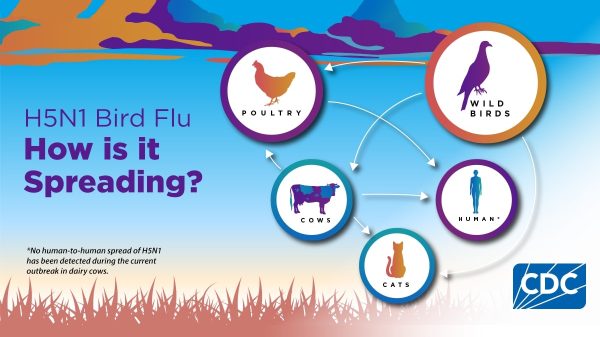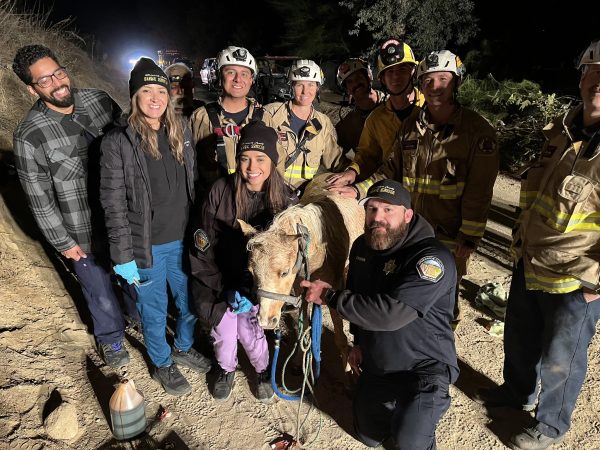For the first time, H5 bird flu has been detected at one of Los Angeles County’s wastewater sampling sites, health officials said Friday.
Low levels of H5N1 showed up in samples from the A.K. Warren Water Resource Facility in Carson, according to data provided by the LA County Department of Public Health and independent research organization Wastewater Scan.
H5N1 is a type of avian influenza that has been spreading nationwide among birds and mammals, including seals, foxes, cats and cows, according to health officials. There were no reports of human H5N1 cases in LA County, and the overall risk of catching the virus remains low for residents. Currently there is no evidence of sustained human-to-human transmission of H5N1 in the U.S.
“Public Health is actively engaging key risk groups such as dairy and meat processing sites to identify possible sources of H5 avian flu in wastewater,” according to a department statement. “The virus may have been introduced into wastewater by discarded contaminated animal products, infected wild bird droppings entering the sewage system, or animal infection.”
The health department regularly samples wastewater for infectious diseases, officials said. H5 has been detected in Northern and Southern California wastewater and 203 California dairies, and 16 human cases of avian flu have been reported in the state. This has local, state and federal health officials “watching the situation closely,” according to the county.
“This is the first time these bird flu viruses have been found to be spreading in cows,” the Public Health Department statement said.
While the current risk of transmission residents is low, officials suggested these practices when around animals or when consuming animal products:
- Do not eat raw milk, raw cheese and undercooked meat.
- Avoid unprotected contact with sick or dead animals, or materials contaminated with bird feces. The virus spreads other birds, pets or mammals through contact with infected feces or eating infected animals.
- Do not handle wild birds and observe them only from a distance. If you have to touch wild birds, even if they look healthy, thoroughly and frequently wash hands and consider wearing a mask that fits well. Some birds may carry the virus while appearing to be in good health.
- Report sick or dead birds to local animal control agencies for possible collection and testing. “Sick birds or animals may not have flu-like symptoms, but instead may be unable to fly, have seizures, have difficulty walking or be found dead,” according to the county health department.
- Prevent wild birds from entering areas that house pet birds or poultry livestock. Also ensure wild birds can’t defecate downward into holding areas for pet birds or livestock.
- Remove bird feeders and communal birdbaths to lessen the risk of bird-to-bird virus transmission.
- Keep pets away from sick and ailing birds. “There is some risk of the virus being transmitted to mammals such as dogs, cats, and wild mammals, especially if they eat infected, uncooked birds,” according to the health department.
- “It is especially important that people who may have exposure to infected or potentially infected birds or other animals get a seasonal flu vaccine. Seasonal flu vaccination will not prevent infection with avian influenza viruses but can reduce the risk of getting sick with human and bird flu viruses at the same time.”
Symptoms of an H5N1 infection in humans may include:
- cough, sore throat, runny or stuffy nose, muscle or body aches, headaches, fatigue;
- fever or feeling febrile, though officials noted that infection flu viruses do not always cause fever;
- eye redness, known as conjunctivitis;
- shortness of breath or difficulty breathing; and
- diarrhea, nausea and vomiting.
For questions or to find a clinic or doctor, residents may call the Public Health InfoLine at 833-540-0473 daily 8 a.m. to 8 p.m.
More information on avian flu is on county websites: avian flu in animals — publichealth.lacounty.gov/vet/HPAI.htm and avian flu in humans — ph.lacounty.gov/acd/diseases/h5n1.htm







